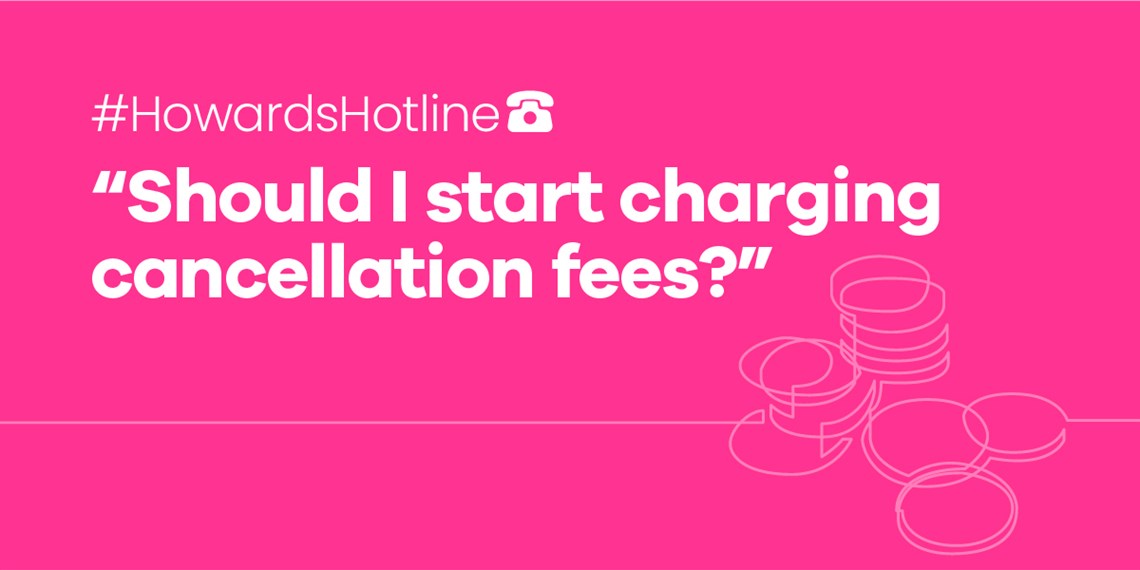A Guide for Hairdressers: Cancellation Fees
Published date 22 March 2024

"Should I start charging cancellation fees?"
Picture this:
You're booked in with a client who is wanting a full head of highlights, a cut & blowdry, and a deep conditioning treatment, which you had scheduled in for the entire morning... and then they pull a no-show. Frustrating, right?
Within the busy world of hairdressing, managing client appointments efficiently is they key to success. However, handling last-minute cancellations and no-shows can disrupt schedules and frustratingly, revenue. After one too many cancellations and no-shows, you might consider charging cancellation fees, but you might be unsure about the legalities, how to approach your clients, and how you can reduce no-shows from happening. We've formatted this guide to help you navigate these questions and provide examples of cancellation policies to consider.
What is the law?
Before implementing cancellation fees into your policies, it's crucial to understand the legal framework surrounding them. Laws regarding cancellation fees ultimately lie with the decision of the service provider, however, to enforce any cancellation fee policies, you would have to prove to your clients that they were informed at the time of making the appointment that they would be charged if they failed to show.
How To Approach The Topic
There is always the risk of putting clients off booking an appointment with you when implementing cancellation fees, therefore we want to approach the topic by keeping clients on your side! Start by explaining the reason behind your policy, emphasising the impact of last-minute cancellations on your business. Here are some tips for effectively communicating your cancellation policy:
- Include the policy on your website, booking platform, and appointment confirmation emails.
- Clearly outline the terms, including the notice period required when cancelling as well as the fee amount.
- Provide clients with multiple opportunities to review and acknowledge the policies before booking an appointment.
- Be open and prepared to answer questions or concerns clients may have regarding booking or the need to cancel. It is key to stay empathetic and understanding if your clients come to you with this.
How Can I Reduce No-Shows?
While implementing cancellation fees can help reduce no-shows, there are proactive steps you can take to minimise them happening.
Send appointment reminders
Send reminder messages via email or text a day or two before the scheduled appointment to confirm the time and date.
Deposits
Require clients to pay a deposit when booking appointments, which can be applied towards the service or fortified in the event of a cancellation.
Incentives for timely cancellations
Consider offering discounts or other incentives for clients who provide advanced notice of cancellations. this will encourage clients to reschedule rather than simply not showing up.
Maintain open communication and work on client loyalty
Build strong relationships with your clients based on trust and communication. Clients who have strong relationships with their hairdresser will be more considerate of your time. You want to ensure your clients feel comfortable to reach out to you if they need to reschedule and you must be understanding of their circumstances.
Cancellation Policy Examples
Asking for a booking fee
For services that require a large amount of your time, ask for a deposit or booking fee to secure the appointment. The amount is your choice, but it can be up to 50%. If your client fails to show, you will have some compensation for the time lost. If your client does show, the deposit will then be taken from the overall price of the service.
Time-based cancellation notice
Most salons have a minimum amount of time they expect clients to be notified of a cancellation. This could be anything between 24-72hrs prior. If your client doesn't cancel within your specific time frame, you can impose a fee.
Strike-based policy
This policy will help you to eliminate those clients that repetitively don't cancel prior or don't show up to their appointments. If a client repeatedly misses appointments, you could suggest they pay for the service upfront in full to protect your business.
We've put together two examples of cancellation policies that you may consider implementing:
Example 1
- Clients must provide at least 24 hours' notice for cancelling or rescheduling.
- Failure to provide sufficient notice will result in a cancellation fee of 50% of the service cost.
- The cancellation fee must be paid in full before booking future appointments.
Example 2
- A non-refundable deposit of 50% of the service cost is required to secure all appointments.
- The deposit will be applied towards the total cost of the service.
- In the event of cancellation with less than 24hrs notice, or a no-show, the deposit will be forfeited.
Deciding whether to implement cancellation fees requires careful consideration of legal obligations, client communication strategies, and proactive measures to reduce no-shows. By implementing clear policies, communicating them effectively to clients, and taking steps to minimise cancellations, you can gain a balance that protects your business interests while maintaining a positive relationship with your clientele.

Comments
There are currently no comments, be the first to comment.